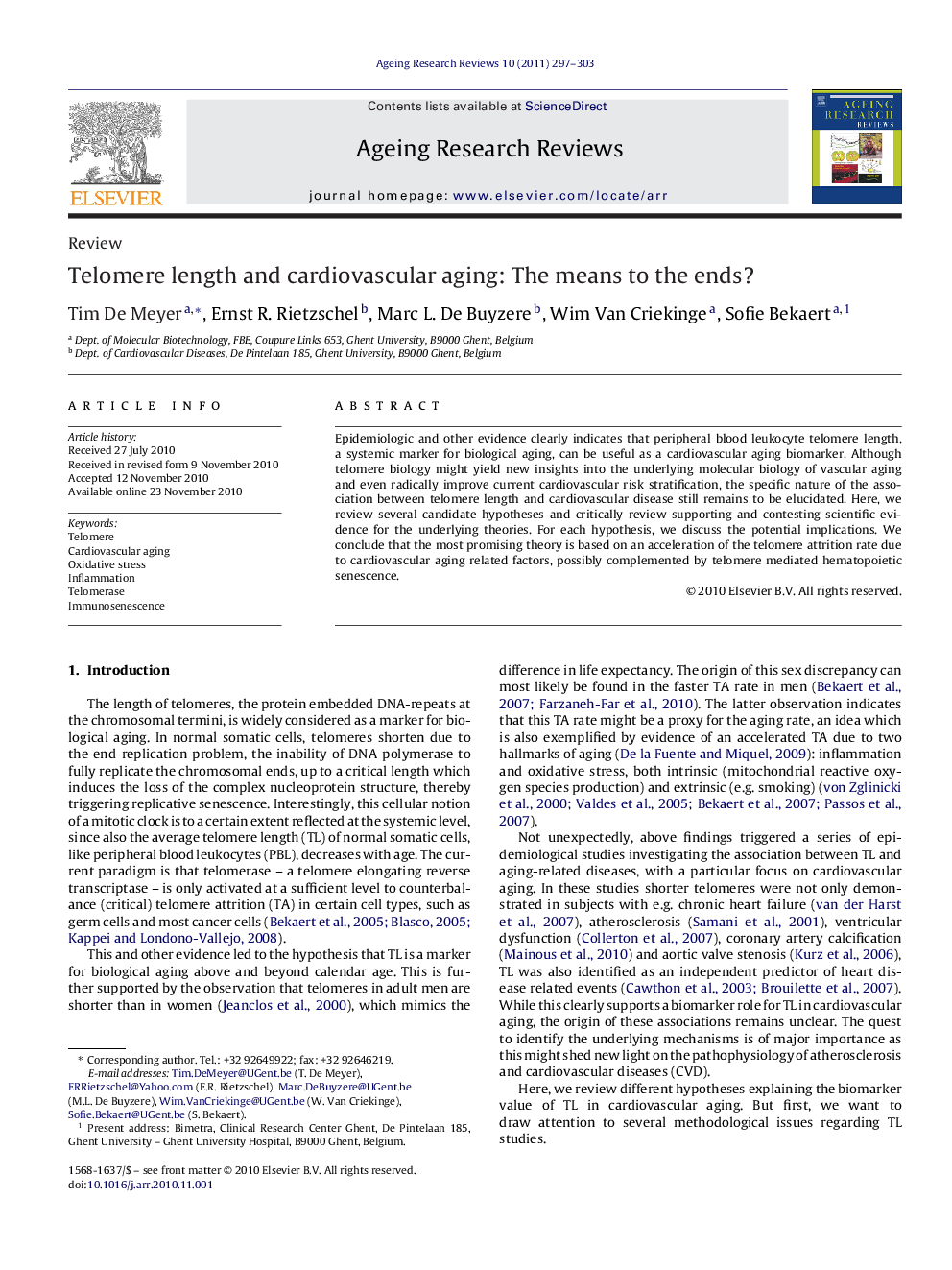| Article ID | Journal | Published Year | Pages | File Type |
|---|---|---|---|---|
| 1902373 | Ageing Research Reviews | 2011 | 7 Pages |
Epidemiologic and other evidence clearly indicates that peripheral blood leukocyte telomere length, a systemic marker for biological aging, can be useful as a cardiovascular aging biomarker. Although telomere biology might yield new insights into the underlying molecular biology of vascular aging and even radically improve current cardiovascular risk stratification, the specific nature of the association between telomere length and cardiovascular disease still remains to be elucidated. Here, we review several candidate hypotheses and critically review supporting and contesting scientific evidence for the underlying theories. For each hypothesis, we discuss the potential implications. We conclude that the most promising theory is based on an acceleration of the telomere attrition rate due to cardiovascular aging related factors, possibly complemented by telomere mediated hematopoietic senescence.
Research highlights▶ Telomere length is a biomarker for cardiovascular aging. ▶ The nature of the telomere biology – cardiovascular aging association is unknown. ▶ Shorter inherited telomeres do not appear to predispose to early atherosclerosis. ▶ Atherosclerosis related factors accelerate telomere attrition. ▶ In addition, telomere mediated immunosenescence might promote cardiovascular disease.
